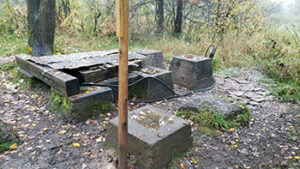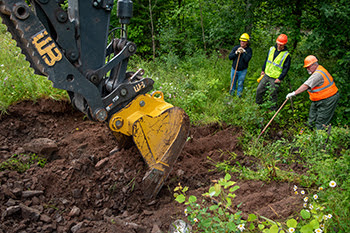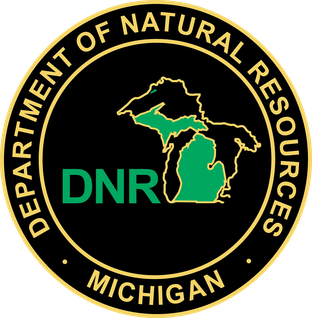Michigan DNR to begin renewed ground search for water source in Ontonagon County
Beginning this week, personnel from the Michigan Department of Natural Resources will renew a ground search for the source of an unregulated water supply near a roadside access point in Greenland Township.
In April, the DNR said it would begin its new search for the water source once springtime weather conditions allowed.
The water has been used for drinking water and other needs for decades. The roadside access is located along the Bill Nichols Rail-Trail, off M-38 at the former site of Lake Mine, a historic mining community.
A group of state, county and local entities, including the DNR, is working cooperatively to find the source of the water to try to ensure it is a safe supply for drinking. The water source is believed to be on land administered by the DNR.
The DNR is under and order from the Michigan Department of Environment, Great Lakes, and Energy to disable the makeshift drinking spigot along the roadside and close off access to the water.
EGLE has granted the DNR an extension until at least the end of next month to conduct its search for the water source and determine whether potential alternatives exist that might keep the water available to the public.
“This is a step-by-step process moving ahead, nothing has been predetermined,” said John Pepin, DNR deputy public information officer. “We urge cooperation from the public as we move ahead with our search.”
Over the past few months, new information has come to light that may help determine the source of the water, including a report from a retired county mine inspector who said he could direct the DNR to the source location after the snow melts.
The DNR has been working with the local health department, EGLE, the Michigan Department of Health and Human Services, Ontonagon County and Greenland Township to address concerns at this site. The offices of state legislators Ed McBroom and Greg Markkanen have also been involved.
“If the source well construction is verified it will help determine if the well can be used in its current condition, can be modified to meet well construction standards or will need to be plugged and abandoned,” said Eric Oswald, district supervisor for EGLE’s Drinking Water and Environmental Health Division in Lansing.
Searchers will need to determine if the well is properly constructed, and the source is protected naturally. If it isn’t, the well water will need to be treated in accordance with groundwater under the direct influence of surface water regulations or properly abandoned.
Meanwhile, an advisory notice posted at the site against using the water from the roadside spigot will continue, though EGLE representatives said signage cannot be a long-term solution, only a short-term mitigation.
The group plans to reconvene next month to discuss the findings of the search.






